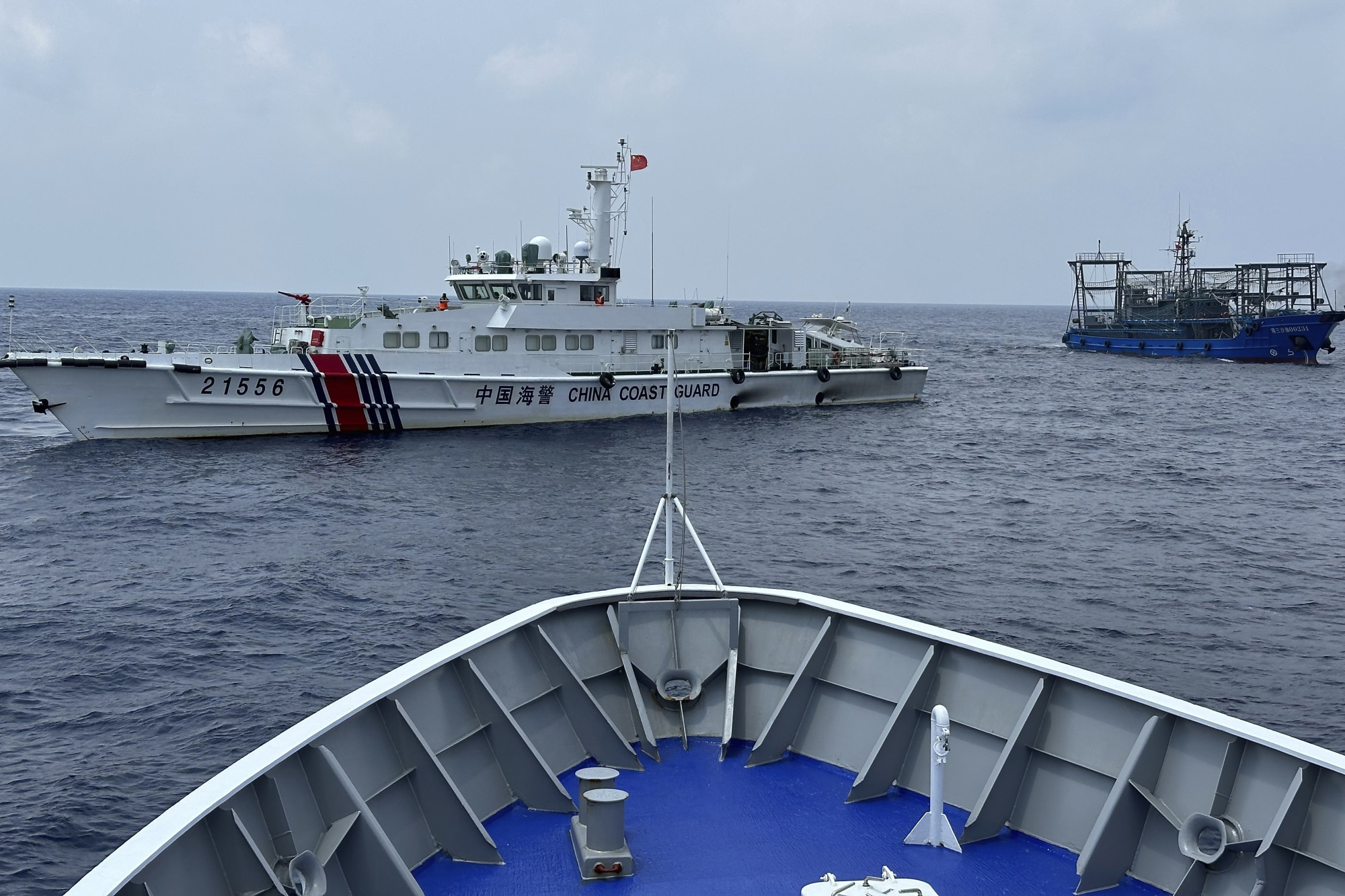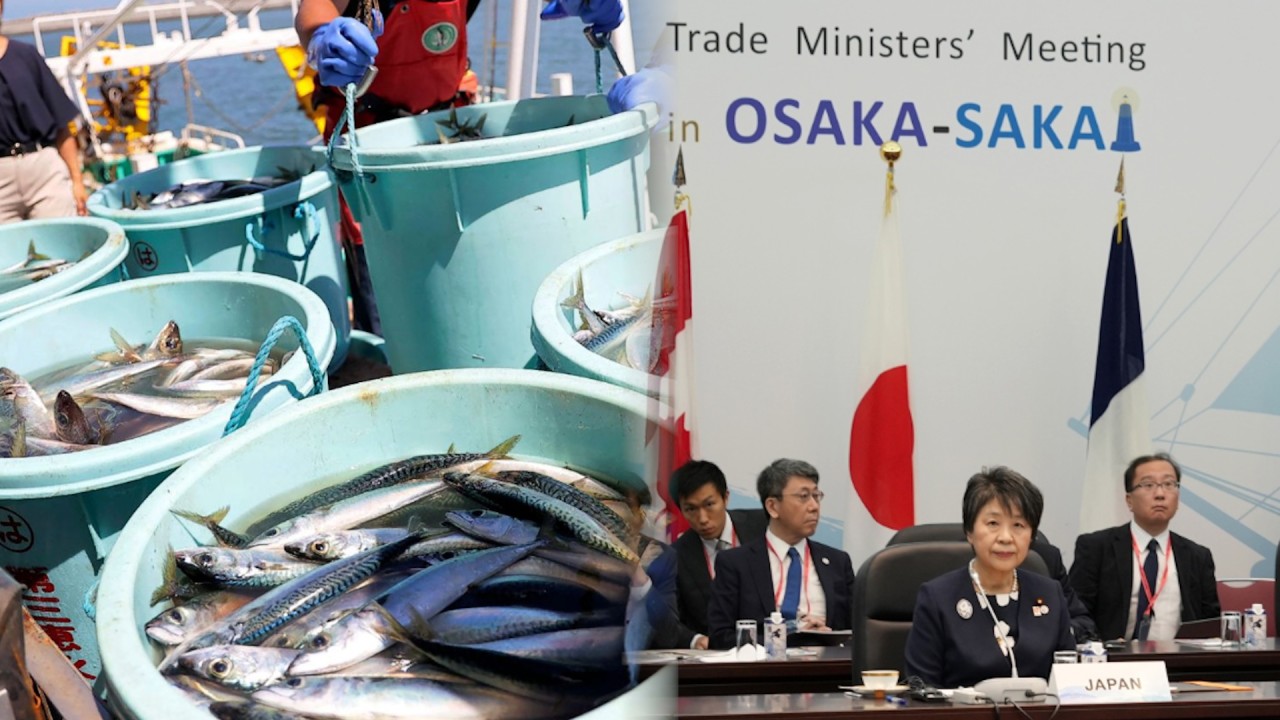John D. Ciorciari, a professor at the University of Michigan’s Gerald R. Ford School of Public Policy, said Kishida and Marcos Jnr are likely to announce talks for a Reciprocal Access Agreement (RAA), which would enable military personnel from each country to visit the other for joint training exercises.
“Given the longstanding limits on the overseas deployment of Japanese defence forces, this would be a significant step in Tokyo’s approach to Southeast Asia,” Ciorciari said, adding that Tokyo is stepping up efforts to work alongside US allies in promoting Southeast Asian security.
“Kishida likely wants to reassure regional audiences that Japan will remain a steady presence in the region, even as the US focuses a great deal of attention on Ukraine and the Middle East,” he added.
“[Kishida’s visit] also offers a reminder to Beijing that Southeast Asian governments have multiple suitors, which can boost their bargaining leverage,” said Ciorciari, who is also the co-editor of the book, The Courteous Power: Japan and Southeast Asia in the Indo-Pacific Era.
Malaysia and the Philippines are set to benefit from Tokyo’s new Official Security Assistance (OSA) programme, which helps “like-minded countries” buy Japanese military goods, Ciorciari said.
Aimed at boosting the deterrence capabilities of Tokyo’s partner countries, the OSA is considered a key part of the National Security Strategy approved by Japan’s cabinet in December last year.
How Japan’s ‘tactical advantage’ may let it act as mediator in Israel-Gaza war
How Japan’s ‘tactical advantage’ may let it act as mediator in Israel-Gaza war
However, Manila said its vessels have “every right” to operate around the area and that the shoal, known in the Philippines as Bajo de Masinloc, is part of its archipelago and exclusive economic zone.
Saya Kiba, an associate professor at the Kobe City University of Foreign Studies, said Japan was an observer in previous Balikatan exercises because there was no scope to secure the participation of Japanese military personnel in the annual exercise that mainly involved the armies of the Philippines and the US.
The latest Balikatan exercise in April brought together 17,680 troops, mainly from the US, the Philippines and Australia.
‘Clearly a concern’: Japan’s hardening China stance sparks regional unease
‘Clearly a concern’: Japan’s hardening China stance sparks regional unease
“[Having an RAA] will enhance Japan’s full-fledged participation in the joint exercises in the Philippines,” Kiba said, and also help boost the Southeast Asia country’s maritime capabilities.
While the Philippines had previously received Japanese coastguard vessels, it would require more advanced equipment and technology from Tokyo for intelligence and surveillance in view of rising South China Sea tensions, Kiba added.
Together with Japan’s civilian-based development assistance schemes and the OSA, Kiba said Japan can provide “seamless support” to boost efforts by the Philippines to safeguard its maritime interests.
Forging closer ties with Malaysia
On Kishida’s visit to Kuala Lumpur, Kei Koga, associate public policy and global affairs professor at Singapore’s Nanyang Technological University, said the Japanese leader hopes to strengthen geopolitical ties with Malaysia given that the current administration under Anwar “seems to be more inclined toward China”.
“The discussion over the OSA seems to be slow in Malaysia, so Kishida would likely explain it to Anwar and attempt to gain his support for the initiative,” Koga said.

After meeting with Chinese President Xi Jinping in late March, Anwar stoked controversy by saying that Malaysia – a claimant in the South China Sea – was “open to negotiations” with Beijing over their maritime disputes.
His government also decided to press ahead with a controversial rail project connecting peninsular Malaysia’s east and west coasts, which had earlier faced delays and charges of corruption and was cancelled by the previous government.
Malaysia in August rejected the latest edition of a Chinese map that outlines Beijing’s claim to almost the entire disputed waterways, including areas lying off the coast of Malaysian Borneo.
As Japan pushes to sell Southeast Asia more seafood, will consumers bite?
As Japan pushes to sell Southeast Asia more seafood, will consumers bite?
Kobe City University’s Kiba said that while Malaysia has stronger maritime security capabilities compared with the Philippines, it is keen to enhance regional defence cooperation and procure arms from other countries.
Furuoka Fumitaka, an associate professor at the University of Malaya, said Kishida might express concern about Malaysia’s rising Islamisation and seek to convince Anwar of the benefits of having good and strong relations with Japan.
Regarding Kishida’s coming speech at the Philippine Congress, Koga said the Japanese leader would focus on the importance of the rule of law in the sea, in particular the UN Convention on the Law of the Seam (UNCLOS) and the 2016 South China Sea tribunal ruling.

The latter refers to the Permanent Court of Arbitration’s ruling in favour of Manila against Beijing over their South China Sea dispute, stating that key aspects of Chinese claims in the maritime area were unlawful.
Describing Kishida’s planned speech in Manila as “remarkable”, Kiba noted that the Fukuda Doctrine – a significant statement of Japan’s commitment to Southeast Asia – was announced in the Philippine capital in 1977.


